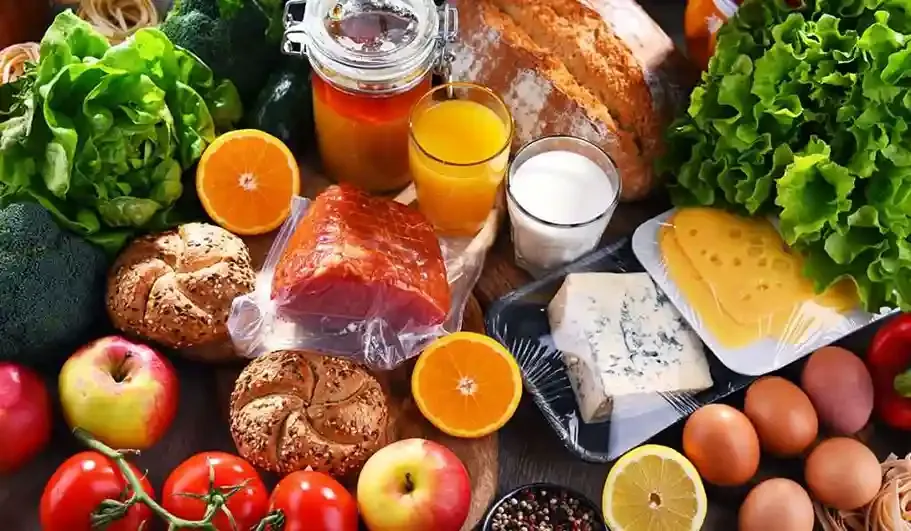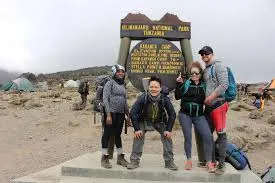Special Diets on Kilimanjaro Treks: Nutrition for Your Climb
When trekking Kilimanjaro with a special diet, planning is crucial. Focus on high-energy, easily digestible foods that fit your restrictions. Consider plant-based proteins for vegans, gluten-free grains if needed, and plenty of snacks for quick fuel. Hydration is essential, so always carry water and electrolyte options. Work with your guides to make sure meals meet your needs, and pack extra options in case the kitchen cannot accommodate. Staying nourished keeps your energy steady and helps your body handle the altitude.
Plan Your Kilimanjaro Trek Now
Why Special Diets Matter on Kilimanjaro
Special diets matter on Kilimanjaro because your body depends on proper fuel and hydration at high altitudes. Eating foods that meet your dietary needs helps maintain energy, prevent stomach problems, and keep you feeling strong throughout the climb. So, planning ahead is not just smart; it is essential. Kilimanjaro’s 6 to 9-day treks pass through five climate zones, from humid rainforests at 80°F to freezing summits at 0°F. Proper nutrition is crucial to fight fatigue, altitude sickness, and cold. Our guide explains how to fuel your climb with customized diets.
Nutritional Needs for Kilimanjaro
Average daily caloric needs on Kilimanjaro range from 3,000–4,000 kcal due to intense physical exertion and high altitude. Carbohydrates (50–60%), proteins (15–20%), and fats (20–30%) are balanced to provide sustained energy, muscle repair, and warmth. Special diets require careful planning to meet these demands without compromising taste or safety.
| Diet Type | Key Nutrients | Sample Meals | Challenges |
|---|---|---|---|
| Vegan | Plant-based proteins, carbs, fats | Lentil stew, rice, avocado | Limited protein variety |
| Vegetarian | Eggs, dairy, plant proteins | Vegetable curry, eggs, flatbread | Dairy freshness |
| Gluten-Free | Rice, quinoa, gluten-free grains | Quinoa salad, rice porridge | Cross-contamination risk |
| Keto | High fat, low carb | Nuts, oils, boiled eggs | Low-carb energy sources |
| Allergy-Specific | Allergen-free ingredients | Customized meals | Allergen isolation |
Special Diet Meal Planning Checklist
- Vegan: Lentils, beans, tofu, quinoa, and fresh vegetables. Example: Chickpea curry with rice.
- Vegetarian: Eggs, cheese, lentils, and vegetables. Example: Spinach and cheese omelet with flatbread.
- Gluten-Free: Rice, quinoa, potatoes, and gluten-free flatbreads. Example: Grilled vegetable quinoa bowl.
- Keto/Low-Carb: Avocados, nuts, oils, eggs, and low-carb vegetables. Example: Avocado and egg salad with almonds.
- Allergy-Specific: Nut-free, dairy-free, or other allergen-free meals. Example: Rice and vegetable stir-fry (nut-free).
- High-Protein: Chicken, eggs, lentils, or protein powders. Example: Grilled chicken with lentil soup.
- Snacks: Energy bars, dried fruits, nuts (if not allergic), or jerky. Example: Vegan protein bars or trail mix.
Nutritional Guide
| Nutrient | Daily Requirement | Special Diet Source |
|---|---|---|
| Calories | 3,000–4,000 kcal | High-calorie snacks, dense meals |
| Carbohydrates | 150–240g (50–60%) | Rice, quinoa, potatoes |
| Protein | 45–80g (15–20%) | Lentils, tofu, eggs, chicken |
| Fat | 66–133g (20–30%) | Nuts, oils, avocado |
| Hydration | 3–4 liters | Purified water, herbal teas |
How Capable Africa Tours Handles Special Diets
At Capable Africa Tours, we prioritize your dietary needs to ensure you’re fueled for Kilimanjaro’s challenging climb. Our experienced chefs are trained to prepare a variety of special diets, using fresh, locally sourced ingredients. We work with you before the trek to customize menus, ensuring every meal meets your requirements while providing the energy needed for the 19,341-foot ascent.
Key Features of Our Dietary Services
- Pre-Trek Consultation: Submit dietary needs via our booking form or email 30 days in advance.
- Fresh Ingredients: Locally sourced produce and proteins, carried in insulated containers.
- Safe Preparation: Dedicated cookware for allergen-free and gluten-free meals to prevent cross-contamination.
- Balanced Nutrition: Meals designed to meet 3,000–4,000 kcal daily needs with proper macro balance.
- Variety and Taste: Diverse, flavorful menus to keep morale high during the trek.
Explore Kilimanjaro Meal Prep with Capable Africa Tours
Watch how our chefs prepare nutritious, special-diet-friendly meals to keep you fueled during your Kilimanjaro trek.
Top Tips for Managing Special Diets on Kilimanjaro
To manage a special diet on Kilimanjaro, plan your meals in advance and communicate your dietary needs clearly with your trekking operator. Pack suitable snacks and supplements that meet your requirements, such as gluten-free bars, vegetarian protein sources, or allergy-safe foods. Stay flexible, but always prioritize balanced nutrition and adequate hydration to maintain energy and stamina at high altitudes. Below is a comprehensive list of tips for managing special diets during your 6–9 day trek with Capable Africa Tours.
- Notify Early: Inform us of your dietary needs 30 days before your trek to allow menu customization.
- Pack Smart Snacks: Bring lightweight, non-perishable snacks like vegan energy bars or gluten-free nuts for quick energy.
- Stay Hydrated: Drink 3–4 liters of purified water daily to combat altitude dehydration.
- Request High-Calorie Options: Opt for calorie-dense foods like nuts or dried fruits to meet high energy demands.
- Communicate Allergies: Provide detailed allergy information to ensure safe meal preparation.
- Test Your Diet: Practice your trekking diet during training hikes to ensure it works for you.
Ready to Climb Kilimanjaro with Confidence?
With Capable Africa Tours, your special dietary needs are met with expertly crafted meals, ensuring you stay energized for the summit. Our tailored itineraries, experienced guides, and eco-conscious approach make your trek unforgettable.
- 98% summit success rate with expert guides
- Customized special diet meals for all needs
- Eco-friendly treks supporting local communities
- All-inclusive packages with meals and transfers
- Flexible routes for all fitness levels
Limited spots available for Kilimanjaro treks — book now to secure your dietary-friendly adventure!
Plan Your Trek Now


